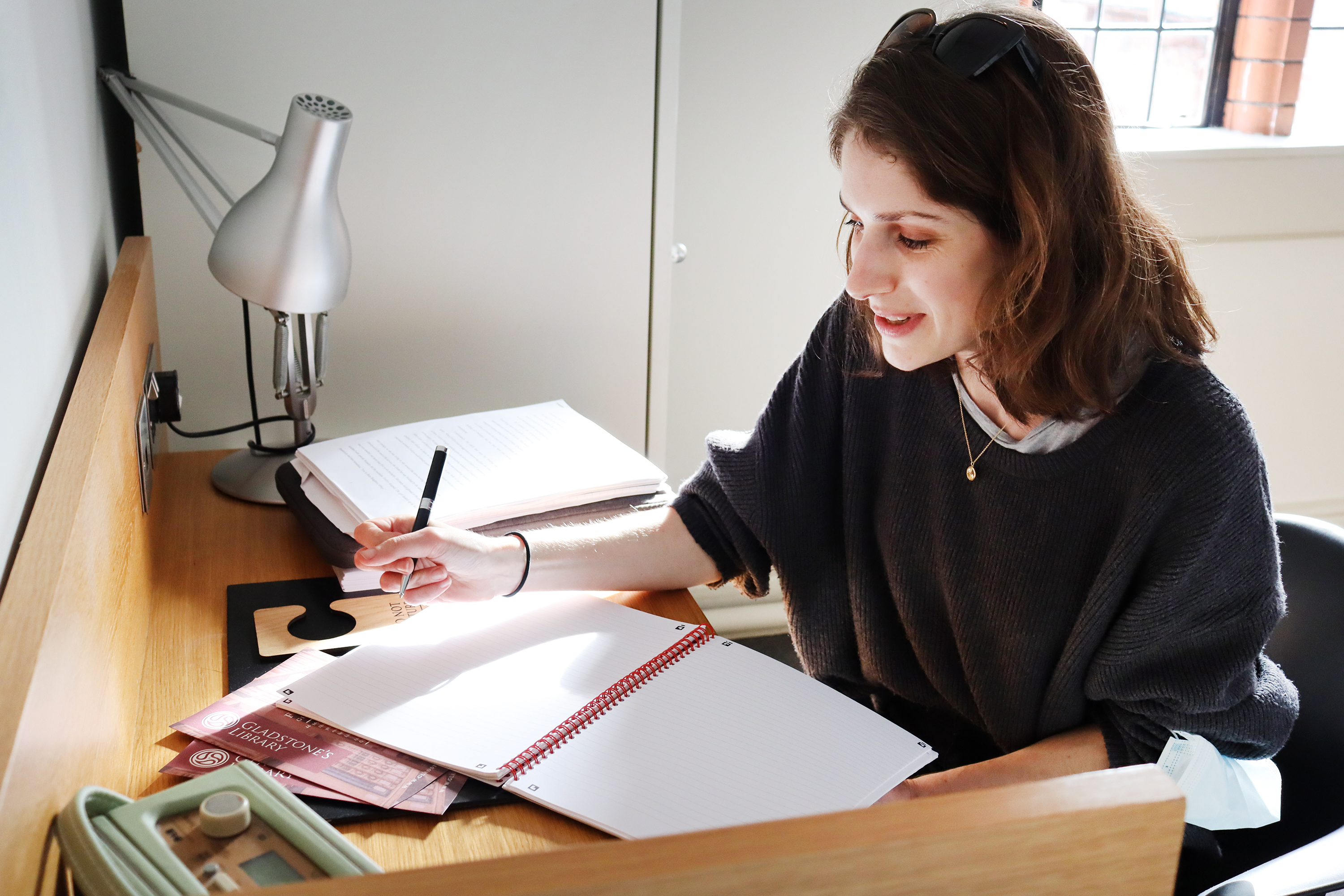I’ve been trying to put my finger on what it is that makes working at Gladstone’s Library so different from working where I usually write, which to say, at home. Certain things are similar. I spend an awful lot of time reading and an awful (and this time I really mean awful) lot of time staring out of windows trying to grasp a certain word or phrase. I eat. I forget to reply to messages. I enjoy the sight of squirrels getting on with life far more purposefully than me.
I think the difference is waking up. Or rather, the difference is the number of steps between bed and my desk. In physical terms, there’s probably no more than about twenty steps in it: as far as the next room at home and about three steps at Gladstone’s. Mentally speaking, the difference is enormous. At Gladstone’s, I make it to my book without any intrusions. I get to my desk before anything else claims my attention: no emails that need answering, no dishes that need washing, no questions that need replies. And in the space where those things would usually crowd in, I find thoughts about my book waiting. Sometimes there are even new ideas, new realisations about my characters or possible solutions for problems that have been bothering me. At Gladstone’s, I don’t waste so much time working my way back into the world I left at my desk the last time I was there. To paraphrase ee cummings, here I can carry my book with me. I carry it in my head. I am never without it.
I’ve been writing about Virginia Woolf and I think often about her concept of a woman’s room of her own. It was famously Woolf’s requirement for a female author: ‘A woman must have money and a room of her own if she is to write fiction.’ I think you could extend that pronouncement to far more than writing fiction. I understand a ‘room of one’s own’ as a space of mental privacy as much as a physical space. Gladstone’s is a place that respects the sanctity of space-to-think; it’s a place that provides and enables it. You see it going on at the desks and in the armchairs and on the sofas: that look of immersed concentration on people’s faces.
It might sound pompous, but I’m going to stand by that word, sanctity. The benefits of a certain private, critical space are enormous: somewhere we can process what we know and feel and don’t yet understand; a space to work out what we truly think about any given thing (even if we don’t come to any hard-and-fast conclusions). I’d argue that, collectively, we owe it to each other to enter that space sometimes – whether it’s a physical one or not (though a dedicated place for it certainly helps).
For all that I relish the isolation offered by the proximity of my desk here, I would put a word in for distractions, too. At Gladstone’s, I’ve been intrigued to see so many people arrive in pairs or groups. There is almost always conversation going on in Food For Thought. The Gladstone Room, with its enticing sofas and relaxed atmosphere, is often occupied by people taking study breaks together. Even the silences here are companionable. After hours at your desk, the company of others in the same boat has plenty of appeal. You can offer each other moral support or a sounding board for the work that’s coming into shape in the library. After days spent in my own company, a weekend masterclass has reminded me just how stimulating conversations with other researchers can be. Time alone with your thoughts is productive in its way, but ideas come alive in expression.
Virginia Woolf mistrusted any force that encouraged us not to think for ourselves. Gladstone’s, as somewhere that offers spaces for discussion as well as for reading and reflection – and that lets women into its reading rooms and leadership! – seems like the kind of library that might have met with her approval.

